Text-to-application or coding assistants are among the most exciting innovations in software development today. In this article, we explore Devon, a powerful open-source tool that rivals popular platforms like Aider and Claude Dev, enabling users to generate applications in mere seconds.
What is Devon?
Devon is designed as a pair programming assistant, similar to Aider, and claims to create virtually anything with just one prompt. Its user-friendly interface makes it more interactive than many existing tools, while still offering a terminal user interface for those who prefer a command-line experience.

Key Features
- Multi-Model Support: Devon supports the Anthropic Claude model, OpenAI, and Groq models, providing flexibility for various coding needs.
- Local Mode: It features a local mode that can be used with Ollama, enhancing its functionality for developers who prefer working offline.
- Comprehensive Functionality: Devon supports multi-file editing, codebase exploration, configuration writing, test creation, bug fixing, architecture exploration, and local model support.
Limitations
While Devon shows great promise, it has some limitations. Its capabilities for non-Python languages are restricted, and users may need to specify which files to modify. Additionally, the local mode is still in development, so it may not be fully stable.
User Interface Experience
The web user interface of Devon is reminiscent of Devin, offering a clean and intuitive design. The terminal interface, on the other hand, has similarities to Aider, catering to users who prefer a more traditional coding environment.
Installation Process
To get started with Devon, follow these steps:
Visit the official GitHub page for Devon.
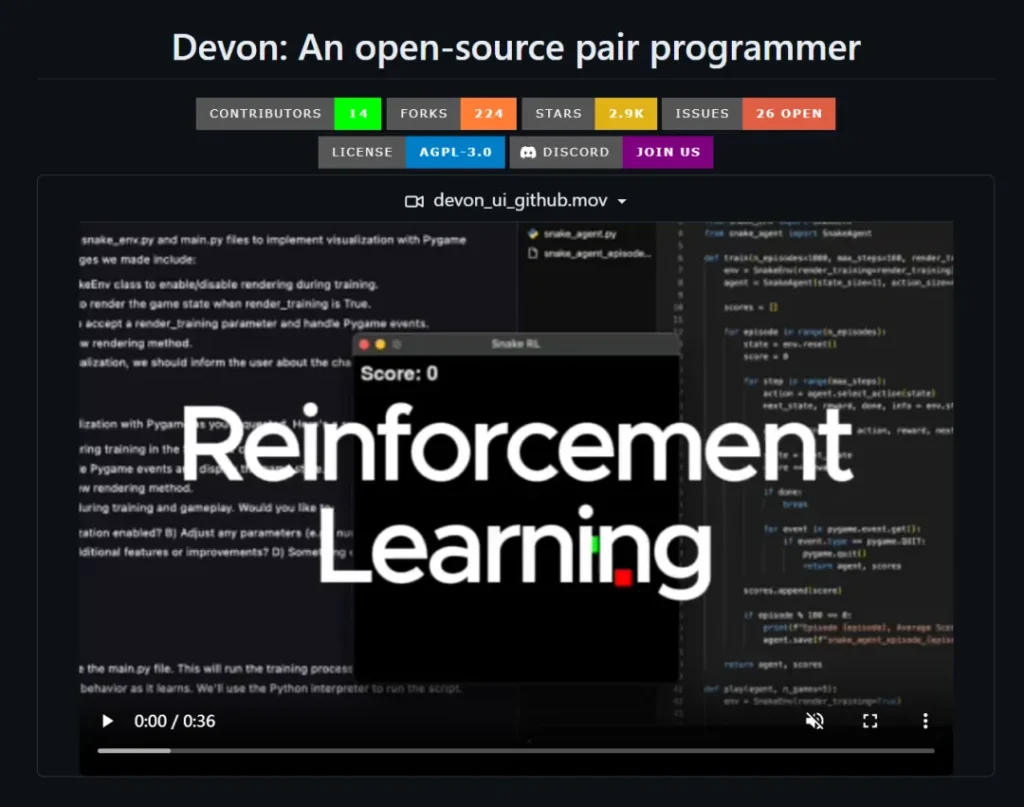
Copy the first command to install the initial package and paste it into your terminal.
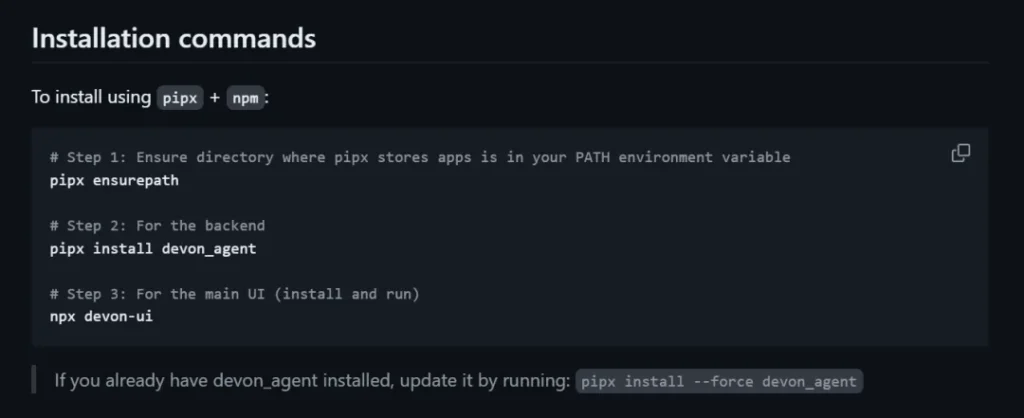

After installation, copy the second command to set up Devon’s backend server.

Finally, run the third command to launch the Electron application, where you can access the Devon interface.


Upon launching, you will be prompted to select a project directory and model. Choose an empty directory and select the GP4-o model. Enter your API key to proceed.
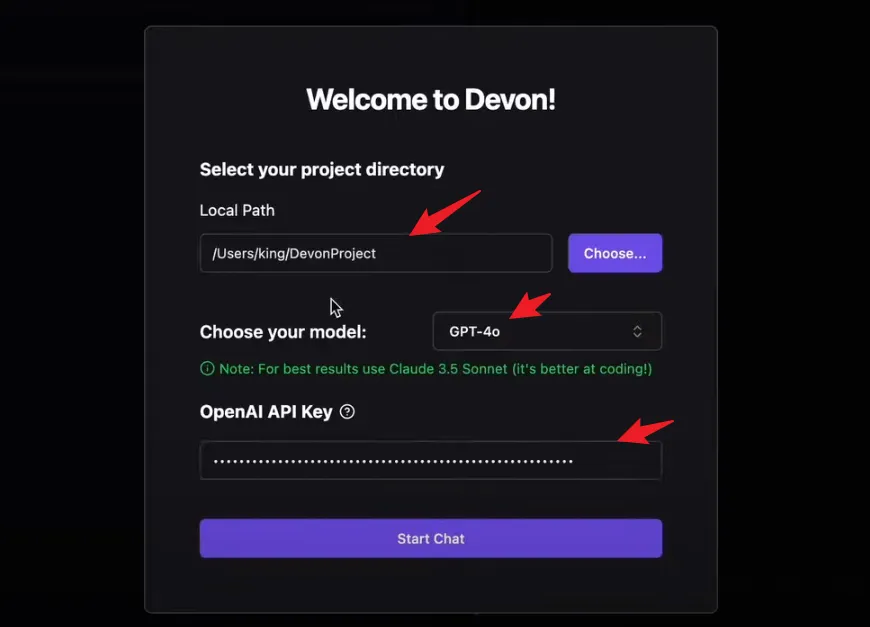
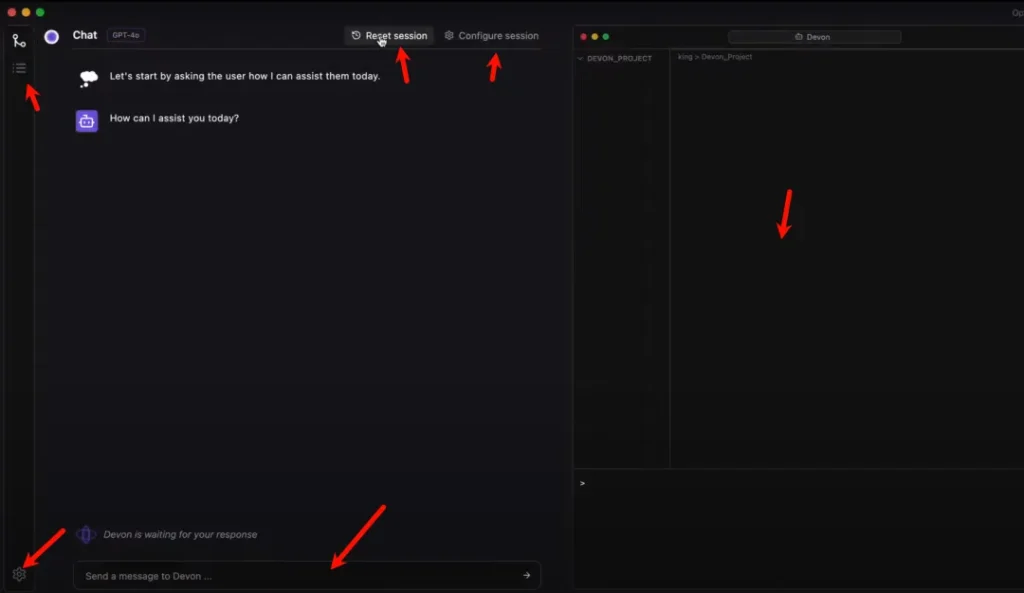
Testing Devon’s Capabilities
Now, let’s see how well Devon performs. Start by asking it to write a simple Python program that adds two numbers. The tool will process your request and generate the necessary files.
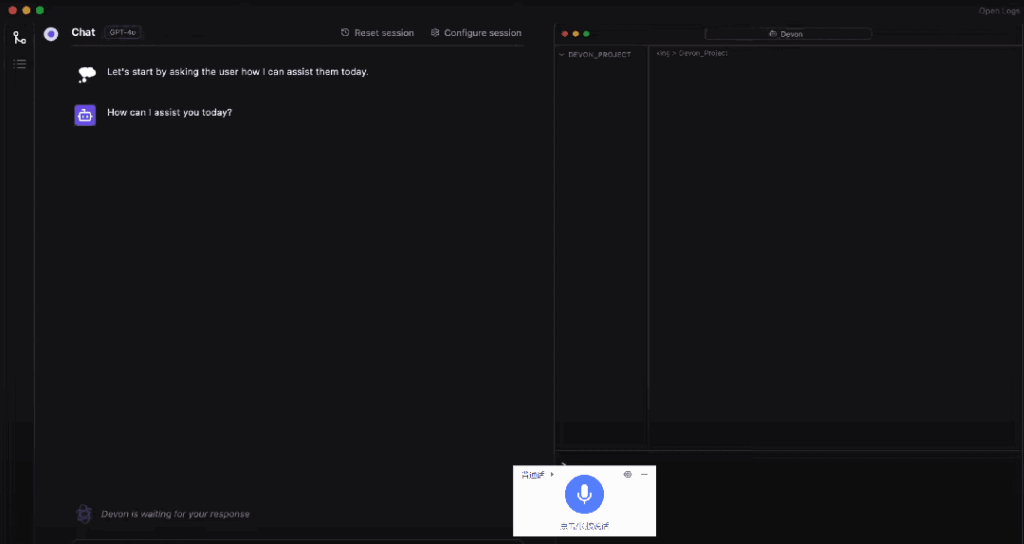
You can monitor the generated files on the right side of the interface. The code produced looks solid, and you can even see the output directly in the application, demonstrating its efficiency.
For a more complex task, request that it create a to-do application. Devon will handle everything from the backend to the frontend, showcasing its comprehensive capabilities.
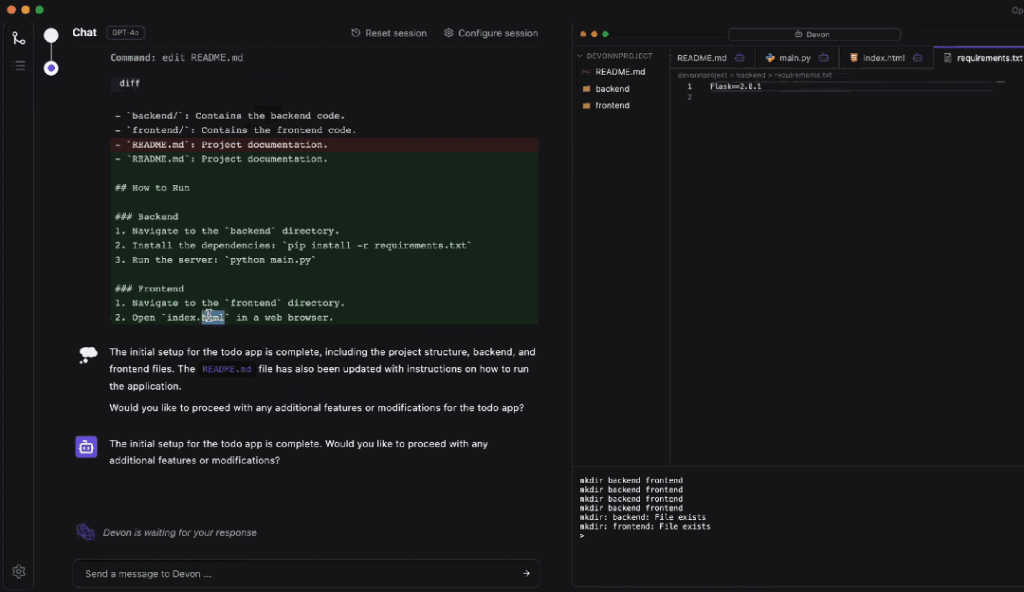
It automatically installs the required packages and runs the application on port 3000, making it a fully autonomous solution.
Exploring the Terminal Interface
Devon also includes a terminal user interface. To access it, run the command to install the Devon Agent.

Once completed, run the command to install Devon 2E.
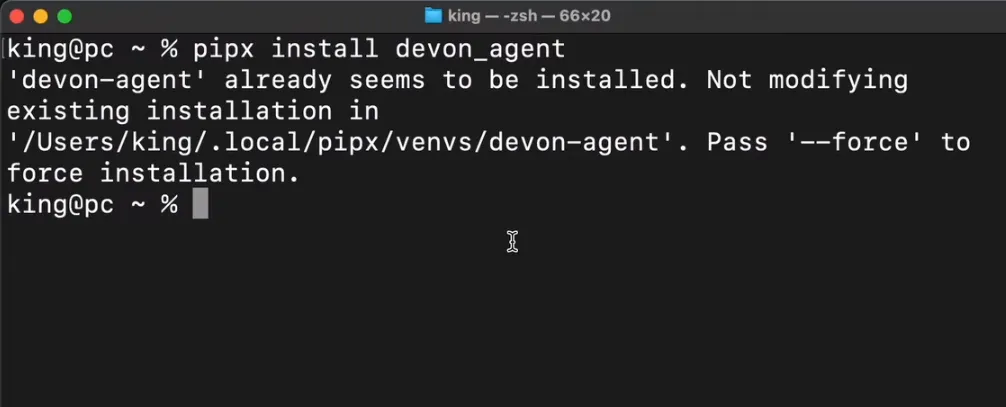

Before using it, set your environment variables by exporting the API key for either Anthropic Gro or OpenAI.
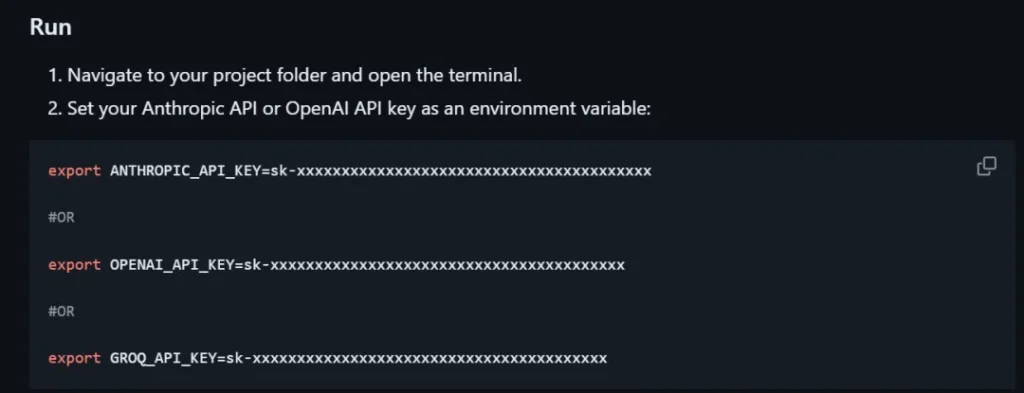

This terminal interface allows you to send commands directly, offering flexibility for users who prefer command-line operations. You can also choose which model to use via configuration options, making it adaptable to your needs.
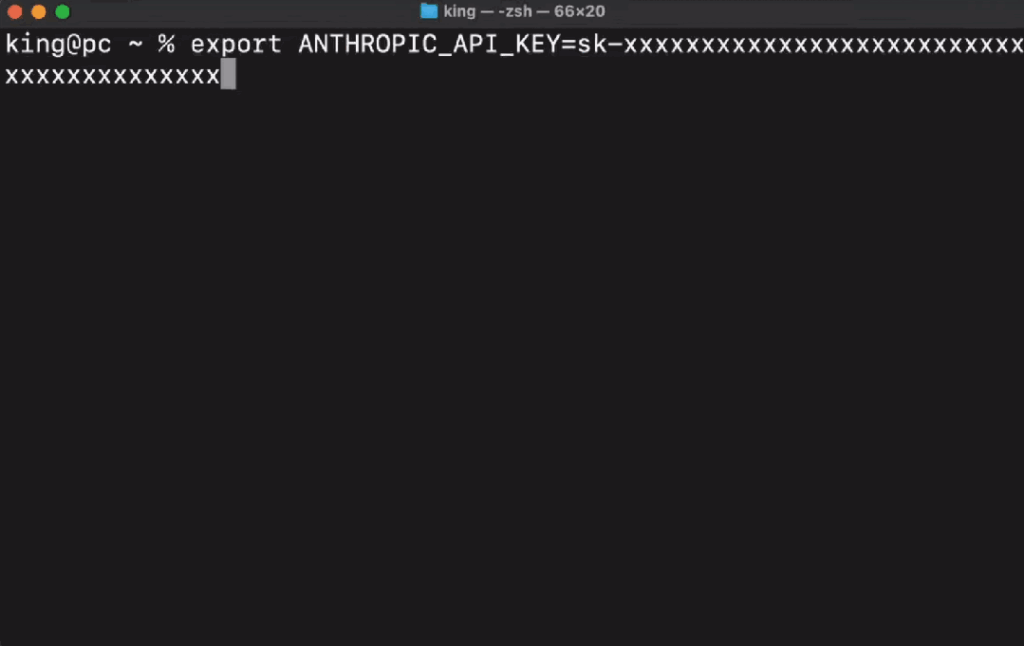
Conclusion
Overall, Devon is an impressive tool with significant potential. While it is still in its early stages and faces some limitations—particularly with languages other than Python—it serves as a powerful automation programmer. As development continues, Devon is likely to enhance its capabilities, making it a valuable asset for developers looking for efficient coding solutions.
In summary, Devon stands out as an innovative option in the coding assistant landscape, offering a blend of automation and user-friendly design that can benefit both novice and experienced programmers alike.
What is Devon AI, and what makes it unique?
Devon AI is an advanced tool designed to generate applications quickly using artificial intelligence. It translates user specifications into functional apps in seconds, making the development process more efficient. For more details, visit the official Devon AI website.
Can Devon AI create different types of applications?
Yes, Devon AI is versatile and can generate various applications, including mobile apps, web applications, and enterprise solutions. This adaptability allows users from multiple industries to utilize the tool effectively. Explore its capabilities further on the Devon AI services page.
What are the pricing options for Devon AI, and is there a trial version available?
Devon AI offers multiple pricing plans, including a free trial for new users to explore its features. Premium plans come with additional functionalities and support. For the latest pricing details and trial options, check the Devon pricing page.
Is coding experience required to use Devon AI effectively?
No, Devon AI is designed to be user-friendly, requiring no prior coding experience. The platform guides users through the app creation process with intuitive prompts, making it accessible to everyone. For more insights on usability, visit the Devon AI overview page.
How does Devon AI ensure the quality of the applications it generates?
Devon AI employs sophisticated algorithms and industry best practices to ensure high-quality application generation. Users can customize and test their apps to refine them before deployment. For more information on quality assurance, refer to the Devon AI quality page.






